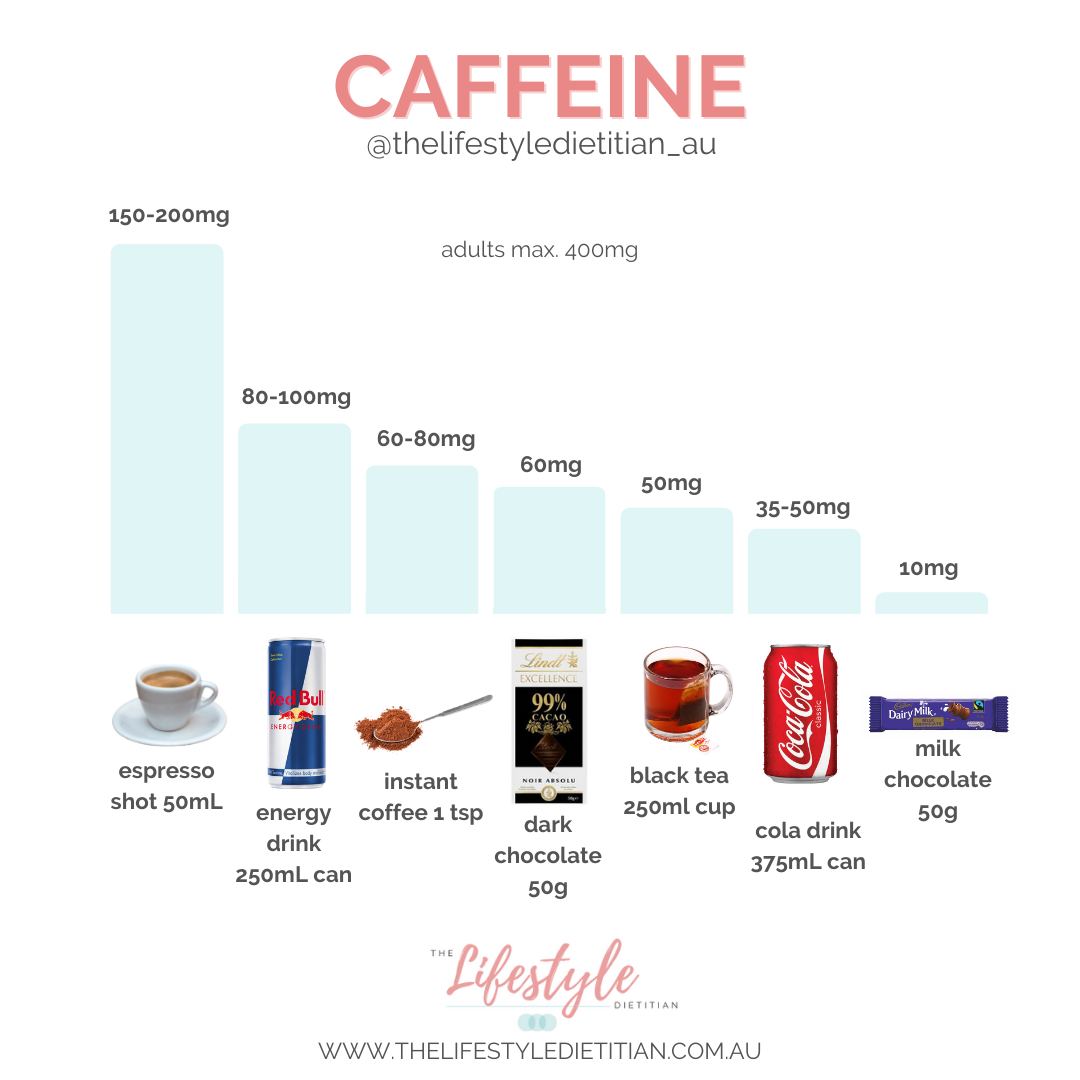A Guide to Caffeine for Work Performance
For many of us, caffeine is a go-to at work to power through the day. Whilst coffee springs to mind first, caffeine is also found in tea, cola, energy drinks and chocolate. Caffeine works physiologically within the brain to fight fatigue and stay alert. In saying that, if you are after better work performance the key is to be strategic with your intake. This is because too much caffeine can:
Reduce sleep quality
Make you feel shaky and anxious
Cause stomach upset and pain
Develop your “caffeine tolerance”, leaving you needing more and more to get the same boost
Contribute to excessive sugar intake if you are getting caffeine from sugary soft drinks, energy drinks and chocolate
So, how can you use caffeine for better work performance without these nasty side effects?
Have caffeine only when necessary
Frequently consuming caffeine results in becoming increasingly tolerant. Overtime, this leads to consuming more caffeine than is safe for health. Start by taking stock of where your caffeine intake is coming from and how often you are having these foods and drinks. Need help? Use the FSANZ Caffeine guide for the caffeine content of common foods and drinks and keep an eye out for less obvious sources like chocolate and tea.
Stick to a maximum of 400mg of caffeine per day
While caffeine can boost productivity to get through your workload, over 400mg in a day will leave you feeling agitated, anxious and can trigger a racing heart beat, insomnia and stomach upset. Around four to five cups of instant coffee hits this limit but keep in mind that caffeine content is hugely variable between sources. For example, there is more caffeine in an espresso than in instant coffee, and more in dark versus milk chocolate.
Keep the four hour window prior to sleeping caffeine-free
Ensuring you don’t have caffeine too soon before sleeping will minimise its impact on sleep quality. Prioritising a better night’s rest will do wonders for your work performance the next day.
Swap out high sugar sOurces
Reach for coffee and tea without sugar or no-sugar soft drinks. Think sparkling water with lemon, lime or a dash of no-sugar cordial. This will help reduce your added sugar intake from regular soft drinks, energy drinks, chocolate and sugar-sweetened iced or hot coffee.
Having caffeine during work isn’t a terrible habit and completely cutting it out may be unrealistic. Instead, take stock of your intake, compare it to the 400mg limit and make one or two tweaks to your habits. This could mean having your last coffee earlier in your shift, swapping to a no-sugar soft drink or packing your own snacks to reach for instead of the vending machine chocolates.
Need more personalised support? Book in with one of our Accredited Practising Dietitians who can help you reach your health goals in a sustainable way.

